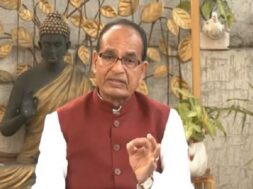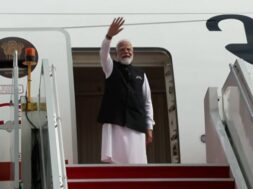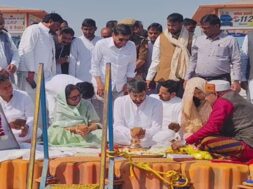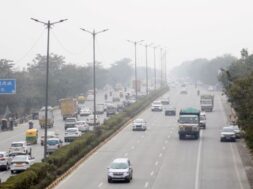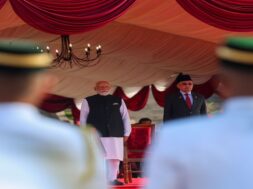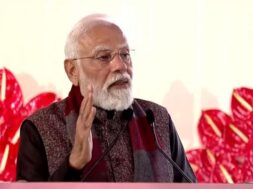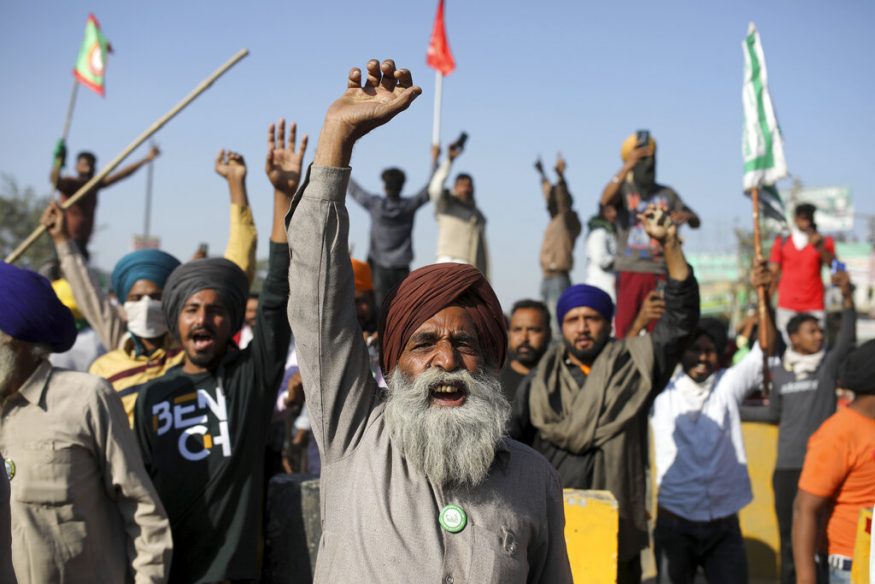
Agitating Farmers Firm on Demand for Repeal of Recent Agriculture Acts Even as PM Claimed these have “Opened New Opportunities”
Manas Dasgupta
NEW DELHI, Nov 29: Even as the agitating farmers rejected he union home minister Amit Shah’s offer for “conditional talks” and decided to set their own agenda for parleys with the centre, the prime minister Narendra Modi made his government’s line on the issue clear claiming that the recent agricultural reforms, which the farmers are demanding to repeal, have given the farmers “new opportunities.”
“The recent agricultural reforms have not only served to unshackle the farmers but have also met the demands raised by farmers for years,” Modi said in his November “Mann ki Baat” aired over radio and television channels on Sunday.
Modi claimed that various political parties often make promises to the farmers but his was the first government that had actually moved to fulfill the promises. His address came even as the Leaders spearheading the farmers’ agitation met to discuss Shah’s offer which it decided to reject on the ground that the home minister had nothing to do with farmers and agriculture. The leaders set fresh terms for talks with the Union government, demanding the Centre name and authorise a Cabinet committee or a group of ministers for future discussions, the All India Kisan Sangharsh Coordination Committee (AIKSCC) said on Sunday.
The Home secretary Ajay Bhalla had on November 28 written a letter addressed to Darshan Pal Singh, the Punjab chief of the Krantikari Kisan Union, along with 31 organisations, reiterating the home minister’s offer for early talks.
The AIKSCC said the home ministry should not lead the discussions as agriculture was outside its jurisdiction. “We have rejected the offer for talks with the home ministry. The home ministry has nothing to do with farmers or agriculture,” said Darshan Pal. The AIKSCC also said Shah’s condition that the farmers must collect only at Burari ground in Delhi, “which is like an open jail” and clear all the road blocks as the first condition for holding talks was also not acceptable to the agitating farmers demanding repeal of the three recent acts connected with the farmers and the electricity bill.
In a reply to the home secretary’s invitation, the farmers’ representatives set new conditions for the next round of talks, calling for involvement at the “highest political level”.
“Instead of responding to the main demands of repealing of three black laws and the withdrawal of the Electricity Bill 2020, the government is doing its best to move the debate to where the farmers should camp,” a AIKSCC statement alleged. “The government, if it is serious about addressing the demands of the farmers, should stop laying down any conditions (“you move to Burari Grounds in a ‘structured way’ and then we will start a dialogue the next day”), should stop assuming that the dialogue can be about “an explanation to farmers about the benefits of the Acts” and should come straight out with a proposal about the solution it is offering. The farmers are clear about their demands,” said the statement.
“The Prime Minister takes all decisions in the country. Although Union ministers have participated in the last round of talks, we are not sure if they are empowered to take any decisions. We want a Cabinet committee or a ministers’ group duly authorised or notified by the highest political level for further discussions,” the AIKSCC said.
Sunday was the fourth day since farmers from Punjab, Haryana, Uttarakhand and Uttar Pradesh among other neighbouring states set off on their “Dilli chalo” (march to Delhi) campaign to protest a set of laws to liberalise farm trade and open up agricultural markets in the country.
“The AIKSCC has demanded that the government should stop dealing with the issue from the prism of intelligence agencies and home ministry. The government got these statutes rammed through Parliament and farmers expect a response that is political, from the highest levels of the government. Its attempt to invoke the Home Ministry only acts as a threat to farmers, rather than arouse confidence in its sincerity,” the AIKCC said in a statement.
Thousands of farmers have clashed with police, travelling toward the national Capital, where they are holding protests against three farm laws approved by Parliament in September.
Farmers want the central government to revoke three contentious laws approved by Parliament in September. The laws essentially change the way India’s farmers do business by creating free markets, as opposed to a network of decades-old, government-controlled agricultural markets.
Together, the laws allow businesses to freely trade farm produce outside the so-called government-controlled “mandi system,” permit private traders to stockpile large quantities of essential commodities for future sales, which earlier only government-approved agents could, and lay down new rules for contract farming.
Farmers say the reforms would make them vulnerable to exploitation by big corporations, erode their bargaining power and weaken the government’s procurement system, whereby the government buys staples, such as wheat and rice, at guaranteed prices.
Agriculture minister Narendra Singh Tomar and railways, food and consumer affairs minister Piyush Goyal had held day-long negotiations with farmers on November 13. The discussions were inconclusive, but both sides had agreed to continue negotiations in the future.
Modi in his radio address said, “The agricultural reforms in the past few days have also now opened new doors of possibilities for our farmers…These reforms have not only served to unshackle our farmers but also given them new rights and opportunities,” Mr. Modi said.
He cited the example of a farmer from Dhule in Maharashtra, Jitendra Bhoiji, whose payments for his corn crop was kept pending by traders for four months.
“In this situation, the new farm laws that were passed in September came to his aid. Under this law, it was decided that all dues of the farmers should be cleared within three days of procurement, failing which, the farmer can lodge a complaint,” Modi said.
The farmer was able to lodge a complaint and get his pending dues cleared within days, the Prime Minister said.
“Whichever the field, correct knowledge, free from misconceptions and rumours can act as a force multiplier for every individual,” he said.
The Prime Minister cited the example of the CEO of a farmer producer organisation, Mohammad Aslam, from Baran in Rajasthan, who was spreading awareness among farmers about prices at markets through a WhatsApp group.
“To the youth, especially the lakhs of students who are studying agriculture, it is my request that they visit villages in their vicinity and talk to the farmers and make them aware about innovations in farming and the recent agricultural reforms.” he said.

